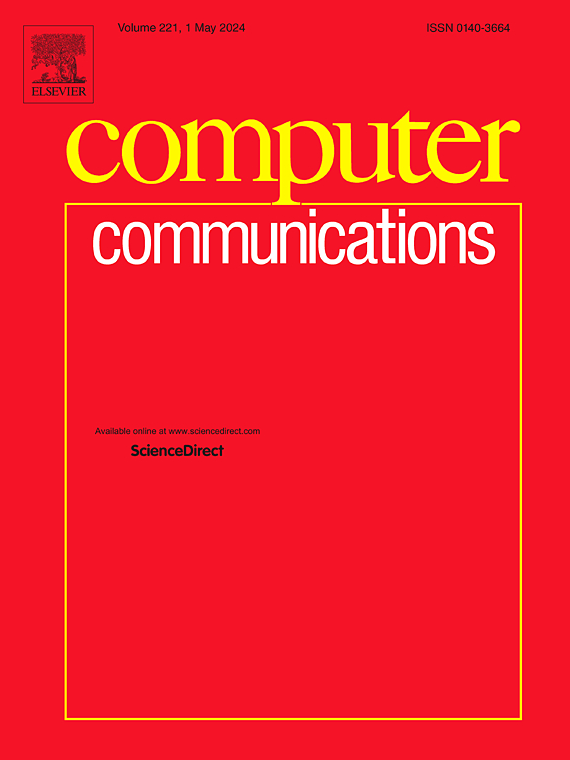绿色边缘云计算下基于强化学习的多智能车辆卸载与资源分配
IF 4.5
3区 计算机科学
Q1 COMPUTER SCIENCE, INFORMATION SYSTEMS
引用次数: 0
摘要
绿色边缘云计算(GECC)协同服务架构已成为智能交通系统中实时密集型多智能车辆应用的主流框架之一。在GECC系统中,有效的任务卸载和资源分配对系统性能和效率至关重要。针对GECC系统中多智能车辆的任务卸载和资源分配问题,现有的研究主要集中在设计静态方法上,即一次或固定次数的任务卸载。这种卸载方式可能会导致边缘服务器拥塞导致资源利用率低,不适合带宽等参数动态变化的ITS。为了解决上述问题,我们提出了一种动态任务卸载和资源分配方法,该方法允许在时间和资源约束下任意次数地卸载任务。具体来说,我们考虑了任务的特点,提出了一种剩余模型来实时获取车辆和任务的状态。然后,根据设计的实时多智能体深度确定性策略梯度(RT-MADDPG)模型,提出了一种考虑时间和能量的任务卸载和资源分配方法。该方法可以在资源和时间约束下任意次数卸载任务,并根据系统状态的变化动态调整任务卸载和资源分配方案,使系统效用最大化,同时考虑了任务处理时间和精力。大量的仿真结果表明,与2种基准测试方法相比,所提出的RT-MADDPG方法可以有效地提高ITS的利用率。本文章由计算机程序翻译,如有差异,请以英文原文为准。
Reinforcement learning based offloading and resource allocation for multi-intelligent vehicles in green edge-cloud computing
Green edge-cloud computing (GECC) collaborative service architecture has become one of the mainstream frameworks for real-time intensive multi-intelligent vehicle applications in intelligent transportation systems (ITS). In GECC systems, effective task offloading and resource allocation are critical to system performance and efficiency. Existing works on task offloading and resource allocation for multi-intelligent vehicles in GECC systems focus on designing static methods, which offload tasks once or a fixed number of times. This offloading manner may lead to low resource utilization due to congestion on edge servers and is not suitable for ITS with dynamically changing parameters such as bandwidth. To solve the above problems, we present a dynamic task offloading and resource allocation method, which allows tasks to be offloaded an arbitrary number of times under time and resource constraints. Specifically, we consider the characteristics of tasks and propose a remaining model to obtain the states of vehicles and tasks in real-time. Then we present a task offloading and resource allocation method considering both time and energy according to a designed real-time multi-agent deep deterministic policy gradient (RT-MADDPG) model. Our approach can offload tasks in arbitrary number of times under resource and time constraints, and can dynamically adjust the task offloading and resource allocation solutions according to changing system states to maximize system utility, which considers both task processing time and energy. Extensive simulation results indicate that the proposed RT-MADDPG method can effectively improve the utility of ITS compared to 2 benchmarking methods.
求助全文
通过发布文献求助,成功后即可免费获取论文全文。
去求助
来源期刊

Computer Communications
工程技术-电信学
CiteScore
14.10
自引率
5.00%
发文量
397
审稿时长
66 days
期刊介绍:
Computer and Communications networks are key infrastructures of the information society with high socio-economic value as they contribute to the correct operations of many critical services (from healthcare to finance and transportation). Internet is the core of today''s computer-communication infrastructures. This has transformed the Internet, from a robust network for data transfer between computers, to a global, content-rich, communication and information system where contents are increasingly generated by the users, and distributed according to human social relations. Next-generation network technologies, architectures and protocols are therefore required to overcome the limitations of the legacy Internet and add new capabilities and services. The future Internet should be ubiquitous, secure, resilient, and closer to human communication paradigms.
Computer Communications is a peer-reviewed international journal that publishes high-quality scientific articles (both theory and practice) and survey papers covering all aspects of future computer communication networks (on all layers, except the physical layer), with a special attention to the evolution of the Internet architecture, protocols, services, and applications.
 求助内容:
求助内容: 应助结果提醒方式:
应助结果提醒方式:


